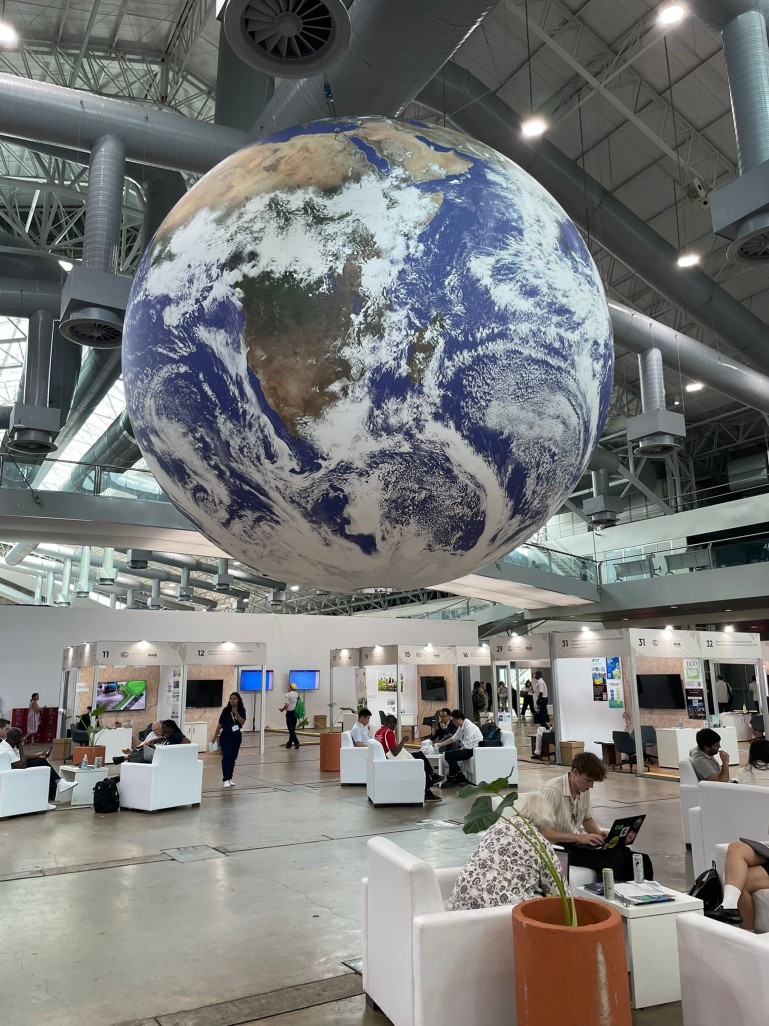

21.11.2025
From November 10 to 21, ATIBT was actively represented in Belém at COP30 by its partner TEREA and Jeanicolau Simone de Lacerda, ATIBT's representative for Latin America. Together, they conveyed key messages about sustainable tropical forest management, certification, and nature-based solutions.

Under the leadership of Pierre Schueller, co-secretary of ATIBT's Carbon & Biodiversity Commission, several major events were organized around:
These sessions brought together numerous partners, OBC, Precious Woods, Planète Urgence, FSC, , Maderacre, Cities4Forests, Africa Energy Transition Services, and served as a reminder that sustainable forest management models are an essential bulwark against deforestation and a lever for local development.
Presentations by Jeanicolau Simone de Lacerda: certification and communities at the heart of the debates
Jeanicolau represented ATIBT at several key events:
“Building for Forests” – PEFC International & FAO (SW4SW)
During this dialogue, he demonstrated how responsible construction using wood can create a direct link between sustainable management, urban resilience, and local jobs.
The key message was clear:
“Building with wood means building for forests”, integrating biodiversity, climate, and livelihoods.
Moderation of a round table at the BNDES Pavilion
The Brazilian Development Bank (BNDES), the government’s leading development institution and a central driver of financial market shifts in Brazil, announced during COP that it will invest more than EUR 1.1 billion in forest projects.
Jeanicolau led an innovative debate on the recognition of intact natural forests as financial collateral, a crucial issue in a context where only degraded land is currently considered in banking operations.
The panel also included Fabíola Flex, representing aDryda, an ATIBT member.
ITTO Panel: sustainable management and community transformation
Jeanicolau presented a concrete case study from the Brazilian Amazon, demonstrating how forest certification and the presence of an SFM company (Precious Woods, ATIBT member) can profoundly transform a local community.
The Belém Call: a major step forward for the forests of the Congo Basin
On Congo Basin Day, a historic political milestone was reached with the official launch of the Belém Call. ATIBT was present as a representative of the Private Sector College of the CBFP (Congo Basin Forest Partnership).
This call commits countries and partners to:
Among the notable announcements:
This international commitment illustrates a growing desire to protect the world's second-largest tropical forest, which is essential to achieving climate goals.
A changing global context: the Tropical Forest Forever Facility
COP30 was also marked by President Lula's announcement of the Tropical Forest Forever Facility, an innovative mechanism designed to reward the preservation of intact forests.
This fund aims to raise $25 billion to provide predictable annual payments to countries that preserve their forest cover.
The TFFF was conceived as a large-scale endowment fund designed to reward countries that maintain humid tropical forests and agree to adhere to monitoring rules based on satellite verification and other internationally agreed indicators.
Payments are expected to be made annually per hectare of preserved forest, with minimum allocation rules, while leaving the detailed internal use of the funds under each participating country’s sovereign decision.
So far, the clearest rule applicable to all participants is that at least 20% of each country’s allocation must be directed to Indigenous Peoples and Local Communities. The remaining funds will follow national guidelines that are still under development, and no detailed Brazilian (or other national) regulation has not yet been published specifying item-by-item how these resources will be applied.
Conclusion: a COP that is not over at the time of publication
COP30 is not over yet. Many announcements, technical negotiations, and panel conclusions are still expected.
We will publish a second report next week to share the latest developments and final results relevant to the tropical forest-wood sector.